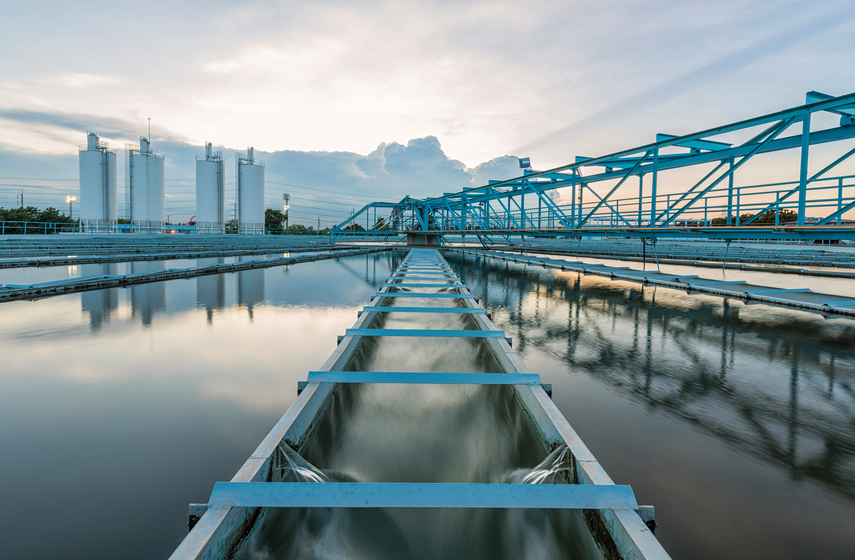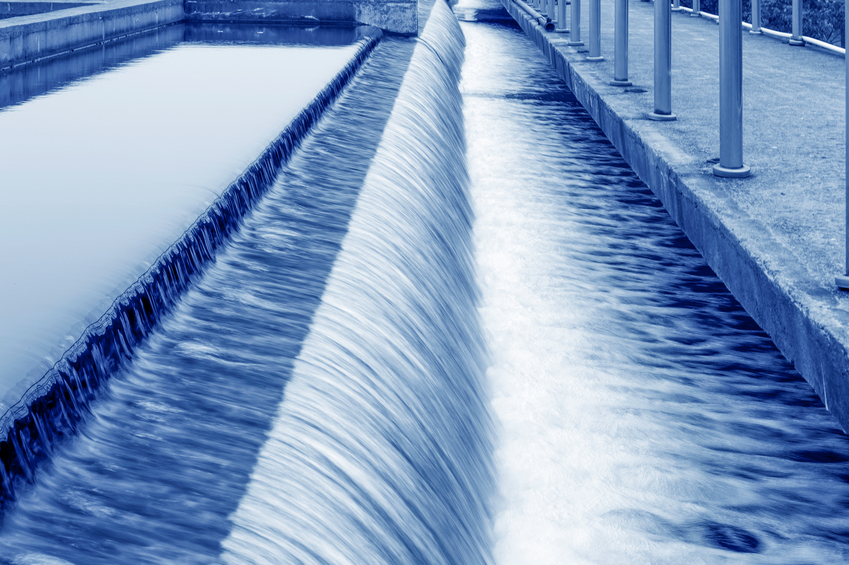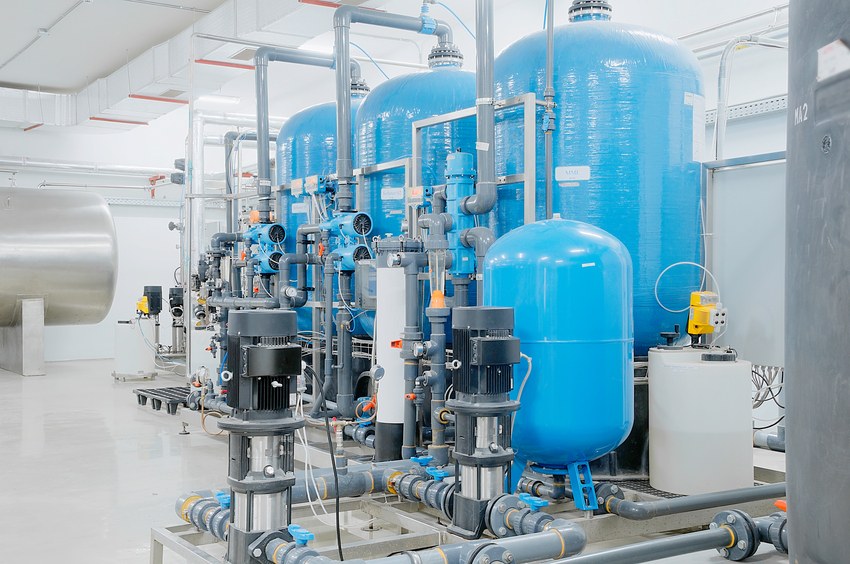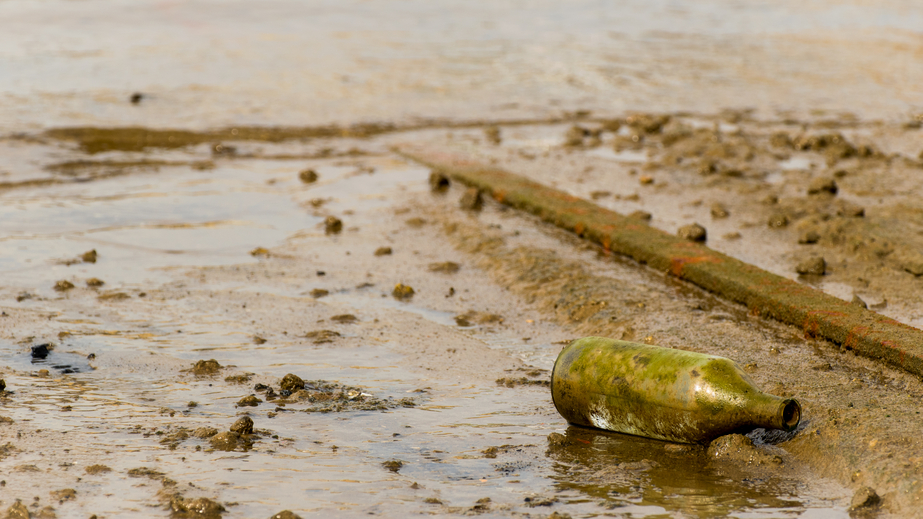Mississippi Chemical and Ethics 15 PDH Discount Package 3
An Introduction to Cooling Tower Water Treatment (C05-019)
An Introduction to Water Desalination (H04-002)
Chemigation - Backflow Prevention (M01-005)
Determining Negligence in Engineering Failures (LE2-012)

This online engineering PDH course will introduce you to methods for cleaning industrial water systems with chemicals. You will learn about pre-operational cleaning which is performed to prepare water-contacted metal surfaces to receive chemical treatment to provide protection from scale, corrosion and microbiological growth. You will also learn about remedial cleaning to restore water systems that have been fouled with scale, corrosion products and microbiological growth due to inadequate or ineffective water treatment. Examples of industrial water systems for which chemical cleaning are applicable are boilers, heat exchangers, cooling towers, and chillers.
Maintenance of an effective water treatment program is essential to minimize scale and corrosion problems in industrial water systems; however, scale and deposits will often form and require remedial cleaning. If not removed, these scale and water-caused deposits may impact the safety of operations personnel, interfere with heat transfer, and cause excessive damage to, or destruction of, the water-using equipment.
This 3 PDH online course is intended for industrial, chemical and mechanical engineers, as well as, maintenance personnel and construction professionals interested in learning about the use of chemicals for cleaning industrial water systems and equipment such as boilers, heat exchangers, cooling towers and chillers.
This PE continuing education course is intended to provide you with the following specific knowledge and skills:
- Learning about pre-operational cleaning of new industrial water-using systems and equipment
- Learning about remedial cleaning of industrial water systems and equipment to restore them to optimal operating condition
- Learning about chemical cleaning methods that have largely superseded mechanical cleaning methods
- Learning about chemicals used for chemical treatment of industrial water systems
- Learning about the use of hydrochloric acid to remove carbonates scale with lesser amounts of phosphates, sulfates and silicates
- Learning about hydrochloric acid's limitations where stainless or galvanized steel is part of the system
- Learning about the use of sulfamic acid to remove scale from metal surfaces
- Learning about the importance of isolating equipment to be cleaned from other parts of the system using valves, rubber blankets, wooden bulkheads with seals, inflatable nylon or rubber bags, rubber sponge-covered plugs, or blind flanges and steel plates with rubber seals
- Learning about the recirculating cleaning process for boilers
- Learning about a circulating method for descaling smaller equipment that does not require heating
- Learning about the fill and soak method of chemical cleaning
In this professional engineering CEU course, you need to review the course document titled, "An Introduction to Chemical Cleaning of Industrial Water Systems".
Upon successful completion of the quiz, print your Certificate of Completion instantly. (Note: if you are paying by check or money order, you will be able to print it after we receive your payment.) For your convenience, we will also email it to you. Please note that you can log in to your account at any time to access and print your Certificate of Completion.

This online engineering PDH course describes water treatment requirements for the most common cooling tower systems, once-through and open recirculating, in industrial applications.
Cooling water systems remove heat generated from a variety of industrial processes. There are three basic types of cooling water systems: once-through, open recirculating, and closed recirculating cooling water systems.
This 5 PDH online course is intended for mechanical engineers and other design and construction professionals seeking an introduction to the technologies, equipment and operational practices for treatment of cooling tower water.
This PE continuing education course is intended to provide you with the following specific knowledge and skills:
-
Learning about once-through cooling water systems
-
Learning about open recirculating cooling water systems
-
Learning about natural draft, induced draft, and forced draft cooling towers
-
Knowing the components of typical cooling towers are and their functions
-
Learning about drift eliminators and fill
-
Understanding water treatment requirements for enhanced and super-enhanced chiller condenser tubing
-
Understanding the importance of controlling legionella bacteria
-
Understanding the relationship between evaporation, blowdown and makeup
-
Learning about cycles of concentration and how they are employed in cooling water treatment
In this professional engineering CEU course, you need to review the course document titled, "An Introduction to Cooling Water Tower Treatment".
Upon successful completion of the quiz, print your Certificate of Completion instantly. (Note: if you are paying by check or money order, you will be able to print it after we receive your payment.) For your convenience, we will also email it to you. Please note that you can log in to your account at any time to access and print your Certificate of Completion.

This online engineering PDH course will introduce you to water desalination technologies, processes and methods. You will learn the importance of site and water source selection. You will be introduced to an approach for selecting the appropriate desalination technology and process. You will learn about distillation/condensation techniques, membrane techniques and ion exchange techniques. You will find out how to develop process concepts, evaluate their utility, and move forward into preliminary design for projects and sites where water desalination is an operational requirement.
This 4 PDH online course is intended for engineers and other design and construction professionals interested in gaining an understanding of the technologies, processes and techniques for treating saline water, such as from the sea, to provide potable or suitable process water to meet the operational requirements of facilities and activities.
This PE continuing education course is intended to provide you with the following specific knowledge and skills:
- Learning about water storage and system modularization
- Learning about the typical desalination flowsheet
- Learning about typical reverse osmosis desalination processes
- Learning about cellulose acetate and polyaromatic amide membranes and their use in membrane desalination processes
- Learning about electrodialysis reversal desalination technology
- Learning the importance of energy conservation and efficiency when evaluating desalination processes
- Learning about high temperature distillation/condensation techniques
- Learning how multiple effect evaporation units are applied
- Learning the characteristics of multistage flash-evaporation units
- Learning about low-temperature distillation processes and how to apply them
- Learning when to use vapor compression techniques in water desalination
- Learning about applications of a multistage flash distillation facility
- Learning about the importance of waste heat recovery evaporation process
- Learning the fundamentals of the vapor-compression vertical-tube distillation system
- Learning the principles of electrodialysis desalination
In this professional engineering CEU course, you need to review the course document titled, "An Introduction to Water Desalination".
Upon successful completion of the quiz, print your Certificate of Completion instantly. (Note: if you are paying by check or money order, you will be able to print it after we receive your payment.) For your convenience, we will also email it to you. Please note that you can log in to your account at any time to access and print your Certificate of Completion.

This online engineering PDH course describes pesticide label requirements for Chemigation, Chemigation system operation and calibration and Chemigation system safety.
Chemigation, or the addition of chemicals to irrigation water, has probably been around for as long as both irrigation and chemicals have been used in agriculture. Chemigation became more widely used in the 1970's with the adoption of center pivot irrigation systems in the Midwest. Backflow prevention is necessary to prevent pesticide contamination of surface water supplies as well as ground water.
This 1 PDH online course is applicable to mechanical engineers, civil engineers, chemical engineers and environmental engineers who are interested in learning more about chemigation in irrigation water.
This PE continuing education course is intended to provide you with the following specific knowledge and skills:
- Pesticide labeling requirements for chemigation
- Alternative devices that also comply with labeling
- Maintenance, calibration and safety of chemigation
In this professional engineering CEU course, you will need to review the material contained in Grower Training Manual for Backflow Prevention in Chemigation of Pesticides, Revised 3/3/04.
Upon successful completion of the quiz, print your Certificate of Completion instantly. (Note: if you are paying by check or money order, you will be able to print it after we receive your payment.) For your convenience, we will also email it to you. Please note that you can log in to your account at any time to access and print your Certificate of Completion.

This engineering online PDH course will establish conditions under which, when an engineering failure has occurred, it can be attributed to negligence.
Five causes of failure are proposed: negligence, rare failure mode, overlooked failure mode, new (previously unrecognized) failure mode, and incorrect assessment of a known risk. Negligence is the only cause that involves failing in an ethical duty. These concepts are illustrated with five case studies of failures ranging from gross negligence to absolutely unforeseeable events: 1) the Great Boston Molasses Flood of 1919, for which a new possible cause was identified 95 years later (2014); 2) a building collapse in Bangladesh in which over 1,000 people died—one of the worst structural engineering disasters in history; 3) a meteorite strike of a private residence; 4) the crash of the British-French Concorde supersonic airliner, caused by an unlikely tire blow-out; and 5) radiation overdoses received by patients treated by the Thorac-25 medical linear accelerator, caused by errors in the software controlling the machine.
The 2 PDH online course is intended for engineers concerned with ethical behavior in engineering practice.
This PE continuing education course is intended to provide you with the following specific knowledge and skills:
- Understanding the definitions of negligence and standard of care
- Relating safety to risk
- Knowing the principle of Knightian uncertainty
- Avoiding the retrospective fallacy in accident investigations
- Avoiding the fallacy, in accident investigations, of assuming perfect engineering practice
- Using the results of failure investigations appropriately
- Being aware of the negative effects of punishment on learning from accidents
- Categorizing the general causes of engineering failures
Upon successful completion of the quiz, print your Certificate of Completion instantly. (Note: if you are paying by check or money order, you will be able to print it after we receive your payment.) For your convenience, we will also email it to you. Please note that you can log in to your account at any time to access and print your Certificate of Completion.